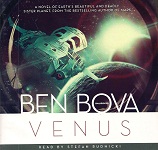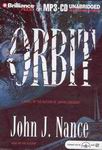
 The SFFaudio Podcast #127 – Jesse, Scott, Tamahome, and Prof. Eric S. Rabkin discuss Vernor Vinge’s Rainbows End (no apostrophe).
The SFFaudio Podcast #127 – Jesse, Scott, Tamahome, and Prof. Eric S. Rabkin discuss Vernor Vinge’s Rainbows End (no apostrophe).
Talked about on today’s show:
“Welcome to our belief circle”, pronouncing “Vinge”, why Eric picked the book, how to appreciate it, Jesse: “I’m not super impressed”, the Neuromancer connection, Robert Gu (the grouchy poet), The Rabbit, mind control, “affiliances”, this book is happy, “it’s a noir book (Neuromancer)”, the nature of Rabbit, the book is told in free indirect style (vs 3rd person limited vs 3rd person omniscient) (I guess “3rd person limited omniscient” is a contradiction), Sherlock Holmes, POV of Rabbit, a missing MacGuffin, we spoil both Neuromancer and Rainbows End, the book’s other inspirations, Alice In Wonderland, projected realities (belief circles), Vinge: “a very mellow extrapolation”, The Moon Is A Harsh Mistress (huh?), Mike the computer, the Jewish doxie of shim sung, Jesse: “I’m liking it more”, the original novella Fast Times At Fairmont High, Bob And Carol And Ted And Alice (sexy!), The Bear Came Over The Mountain by Alice Munro, nursing homes, “a proto-typical mainstream story”, no one likes Robert Gu, Rollback by Robert Sawyer, Vinge’s writing strengths, “big steaming mounds of infodump”, Faulkner’s Light In August, Away From Her (film of Munro story), let’s hear it for Canada, Dune, “The Doomsday Machine” (Star Trek), Saberhagen’s Berserkers, “destruction of the past for the future”, libraryoem = human genome, “tempest in a teapot”, the Geisel Library is named after Dr. Seuss, biological vs technical, “visceral”, The Space Merchants, Terry Pratchett, “DRM’d to the bone”, is it a dystopia?, reach out and touch someone, the word “apostrophe” in poetry, “that’s an extra cuteness”, the absent transitive like “do you ride?”, How do you write good science fiction?, Robert A. Heinlein, Virtual Light, Google Goggles app, Layers app, A Christmas Carol, The Mysterious Stranger by Mark Twain, “the snake of knowledge”, Eric takes notes when he reads, taking notes in an audio book (the Audible app can, Eric), ebook vs paper book, search skills, letmegooglethatforyou.com, Eric’s computer has all the answers, The Diamond Age, politics, Winston Blount, Miri, growth, Xiu Xiang, “Rainbows End is a pot of gold”, a heavenly minefield, rebirth, The City And The Stars by Arthur C. Clarke.
Posted by Tamahome









 Doomsday Book
Doomsday Book